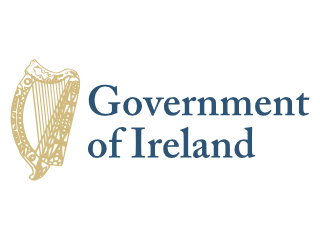Celtic tribes arrived on the island between 600 and 150 B.C. Invasions by Norsemen that began in the late 8th century were finally ended when King Brian BORU defeated the Danes in 1014. Norman invasions began in the 12th century and set off more than seven centuries of Anglo-Irish struggle marked by fierce rebellions and harsh repressions. The Irish famine of the mid-19th century saw the population of the island drop by one third through starvation and emigration. For more than a century after that the population of the island continued to fall only to begin growing again in the 1960s. Over the last 50 years, Ireland's high birthrate has made it demographically one of the youngest populations in the EU. The modern Irish state traces its origins to the failed 1916 Easter Monday Uprising that touched off several years of guerrilla warfare resulting in independence from the UK in 1921 for 26 southern counties; six northern (Ulster) counties remained part of the UK. Unresolved issues in Northern Ireland erupted into years of violence known as the "Troubles" that began in the 1960s. The Government of Ireland was part of a process along with the UK and US Governments that helped broker what is known as The Good Friday Agreement in Northern Ireland in 1998. This initiated a new phase of cooperation between the Irish and British Governments. Ireland was neutral in World War II and continues its policy of military neutrality. Ireland joined the European Community in 1973 and the euro-zone currency union in 1999. The economic boom years of the Celtic Tiger (1995-2007) saw rapid economic growth, which came to an abrupt end in 2008 with the meltdown of the Irish banking system. Today the economy is recovering, fueled by large and growing foreign direct investment, especially from US multi-nationals.
Ireland is a parliamentary republic.
Source: CIA World Factbook
Members:
Resources
Displaying 136 - 137 of 137European Communities (Environmental Impact Assessment) (Amendment) Regulations, 1998.
These Regulations amend provisions relating to environment impact assessment. The amendments restate provisions relating to the information to be contained in an environmental impact statement and exemptions from the requirement to prepare an environmental impact statement. The Regulations also extend the provisions concerning the furnishing of additional information relating to an environmental impact assessment.
European Communities (Environmental Impact Assessment) Regulations, 1989.
These Regulations provide for the incorporation into Irish law, in respect of relevant development of Directive 85/337/EEC on the assessment of the effects of certain public and private projects on the environment. The Regulations modify the provisions of the Local Government (Planning and Development) Acts, 1963 to 1983 so as to provide a framework for the application of Environmental Impact Assessment (EIA) to the planning control procedures under those Acts, and for the application of EIA to relevant development by local authorities.


